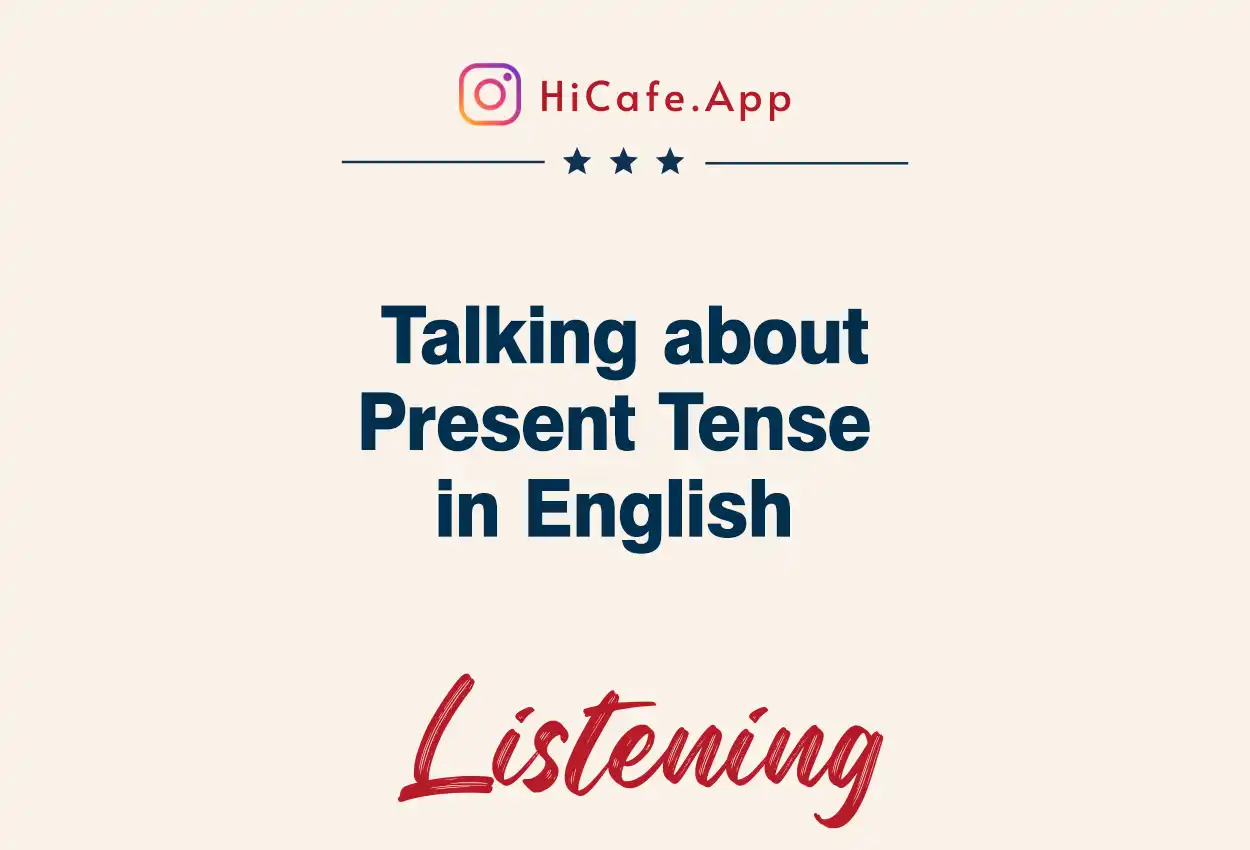
Beginner Listening Series 1 Lesson 11- English Dialogue Present Tense
In this lesson, you listen to an English dialogue present tense.
Previous Listening Lesson
TBD
English Listening Lesson Audio with Script
Lesson Audio
Lesson Script
Conversation 1
Man: What do you do?
Woman: I work at a tech company.
Man: Oh, what do you do there?
Woman: I design software.
Man: Do you like your job?
Woman: Yeah, I enjoy it.
Conversation 2
Man: Do you work here?
Woman: Yes, I do.
Man: Where do I pay my bill?
Woman: You pay it over there.
Man: Do I need to show ID?
Woman: I don’t think you do.
Conversation 3
Man: What do your parents do?
Woman: They both work in sales.
Man: Oh, what do they sell?
Woman: They both sell cars. They have a car dealership together.
Man: Do they like it?
Woman: Yes, but they work long hours.
Conversation 4
Man: Where do you live?
Woman: I live downtown with my family.
Man: Nice. Do you live in an apartment or house?
Woman: I live in a house, but we need more space.
Man: Do you want to move?
Woman: Yes, we want to move to the countryside.
English Listening Lesson Quizzes
Answer these questions about the conversation.
1) What kind of company does she work?
a) Clothing
b) Computers
2) What does he want to do?
a) Pay a bill
b) Get an ID
3) What do her parents do?
a) Make cars
b) Sell cars
4) Where does she live?
a) In a big house
b) In a small house
Quiz answers
1-b
2- a
3- b
4- b
English Grammar Tips
Verbs in Simple Present Tense (First Person)
We use the simple present to talk about actions we do again and again.
Point 1: WH questions use the following pattern.
Wh + do (does) + noun / pronoun + verb … ?
What do you do?
Where do you live?
How do you get to school?
When do you exercise?
Why do you want a pet?
Point 2: Affirmative statements use the following pattern:
I work for a tech company.
I live near the station.
I take the bus.
I play soccer every Monday night.
Point 3: Negative statements use the following pattern:
I do not work from home.
I do not live near my work.
I don’t drive to work.
I don’t exercise that much.
In spoken English we often say don’t instead of do not.
Point 4: Yes/No questions use the following pattern:
Do (does) + noun / pronoun + verb … ?
Do you like tennis?
Do you have a car?
Do you cook a lot?
Do you want a pet?
Point 5: You do not need to repeat the verb when you answer a Yes/No question.
Do you like tennis?
Yes, I do. (Yes, I like tennis.)
No, I don’t. (No, I don’t like tennis.)
It depends. (Sometimes yes and sometimes no.)
English Listening Lesson Phrases
None
Quizzes for Lesson Phrases
None
Previous Listening Lesson
TBD
Related Listening Lessons
TBD
All Lessons for Learning English Listening
Visit our Improve English Listening Skills page to see all of HiCafe 300+ lessons for learning and improving your English listening skills.


